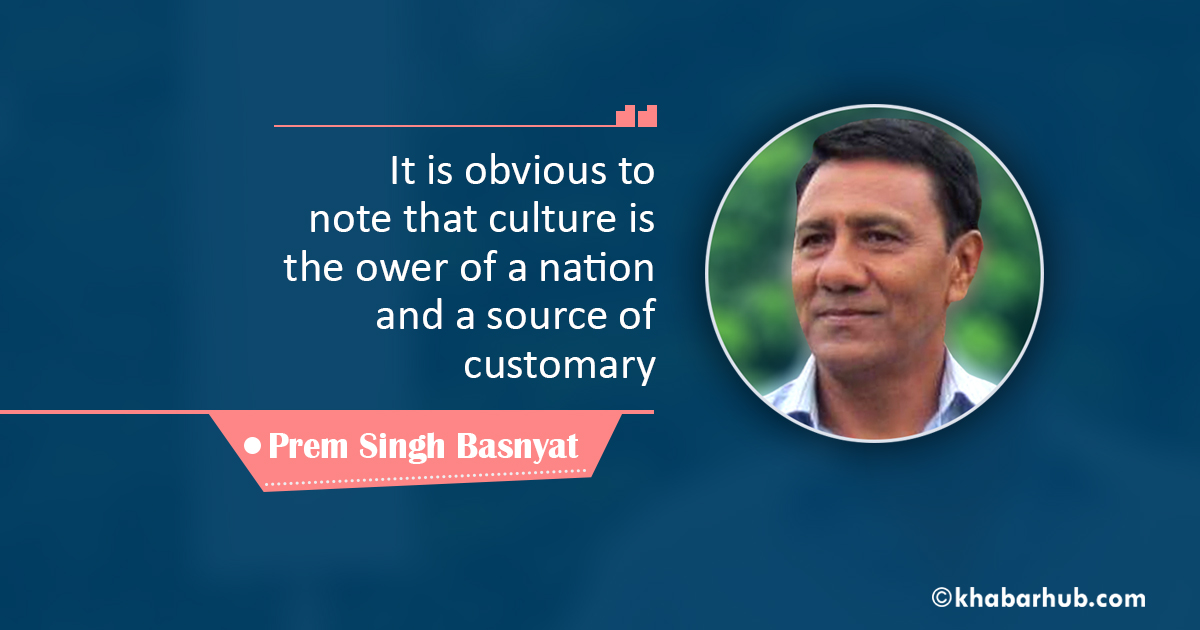0%

It is remarkable to note that prophets and great men come to this world to leave landmarks in the form of culture either in the religious, scientific or social sphere. They leave behind them indelible color to steep multitudes of people in it for hundreds and thousands of years.
The prophets and the great men that had marshaled the people in religious, scientific and social doctrines were Buddha, Christ, Mahmud, Isaac Newton, Karl Marx, Einstein, etc. There are diverse schools of religion and a large number of people whose ways of living, customs, and manners are strongly swayed by those towering personalities.
A man of genius will be one in many millions, and a great genius, the crowning glory of mankind, only appears after many thousands of millions of people on earth have been born and died. In fact, culture has no limitation and it is the history of Beings in other words.
Asia is the epicenter of a cultural hub
ICOM-Japan analysis as Asia is a vast continent marked by diversity. Many of its countries and regions are multilingual with multi-ethnic populations and more than one religion. Asia’s cultural heritage is accordingly rich and varied, reflecting manifold circumstances and histories.
Some Asian countries have experienced colonization in their recent or distant past. The museums found in Asia include not only well-established institutions but also numerous newly constructed facilities. While helping to bring museums to more Asian regions than ever before, this increase has been unavoidably accompanied by inconsistent levels of experience in museum administration, conservation, collections management, and research.
Some Asian museums are sorely lacking in even basic resources and infrastructure; in contrast, others utilize highly sophisticated practices and policies that remain little-known to the outside world due to language barriers or a lack of international interchange.
Likewise, museums with Asian holdings in other parts of the world often have limited access to the specialized or traditional knowledge of their Asian colleagues. In order to better integrate Asian countries with the international museum community, we recommended that ICOM commit to strengthening mutual understanding with Asian museums while at the same time respecting the autonomy, distinctiveness, and diversity of the region.
More specifically, we recommend the following: the promotion of Asia-related exhibitions in accordance with the 2016 ICOM Milano resolution “Promotion and Protection of Cultural Objects on International Loan”; the creation of more robust Asian art databases and digital content with broad, international reach; the fostering of international scholarly exchange among specialists within Asia and around the world; and finally, in order to share knowledge and experience and to enrich the presentation of Asian content in museums around the world, the establishment of specialist networks with a focus on Asian art and culture.
Culture is Power
It is obvious to note that culture is the power of a nation and a source of customary law. The customary law is the main source of national constitution and laws. Also, culture and intangible heritage are the unwritten constitution and laws for a nation which strengthens the national security; the world today has been getting culture-conscious.
For instance; Chinese President Xi Jinping, Indian Prime Minister Narendra Modi, US President Donald Trump, Japanese Prime Minister Shinzo Abe, French President Emmanuel Macron, Russian President Vladimir Putin and many more global leaders have been recalled their cultural value and “Nation First” strategy.
Moreover, the viable indication of the unification of North and South Koreas has been guided by their strong and unavoidable cultural ties.
And ICOM also has prescribed the mutual exchange of culture among the nations to maintain world peace and build up an international community. International politicos’ attention has been strongly focused on the necessity and mutual advantages of the cultural exchange between nations.
The dawn of culture consciousness on the part of the high political quarters, which are supposed to foster international goodwill and friendly relations, is a strong proof of the attempt to bring the world on the hob-and-nob terns in matters of cultural affairs.
It is a matter of no less satisfying to see the cultural bureaus established, attaches appointed and missions exchanged between the nations of the world to make the cultural relations more effective. Political departments without the cultural ones attached to them are, in a way, supposed to be incomplete to-day.
Thus we see modern politics has been highly influenced by the social thing which is otherwise known as culture. It goes without saying that “Museums as Cultural Hubs: The future of tradition” and remains always.
(Concludes)
(Views expressed in this article are the author’s own and do not necessarily reflect Khabarhub’s editorial stance).